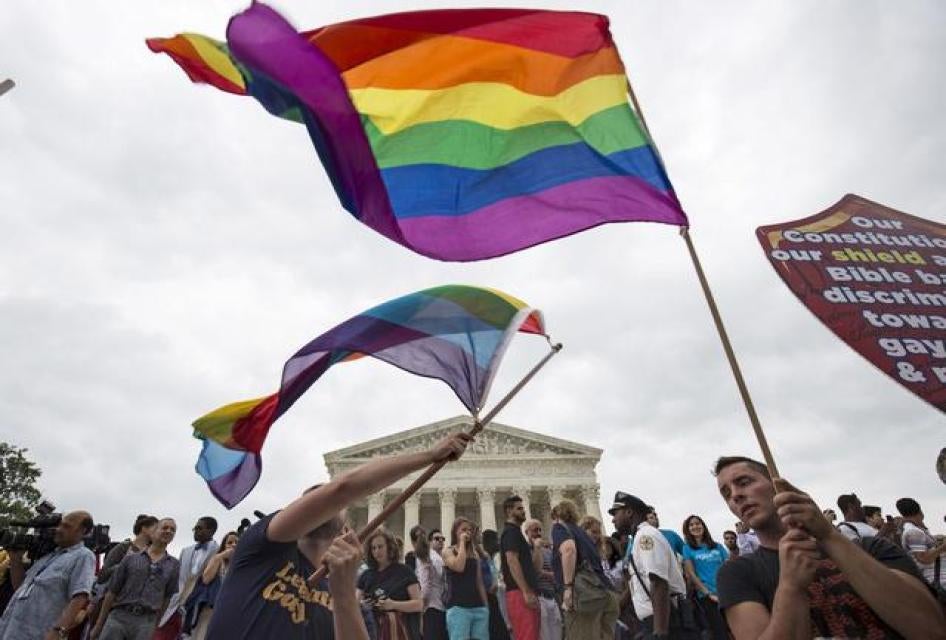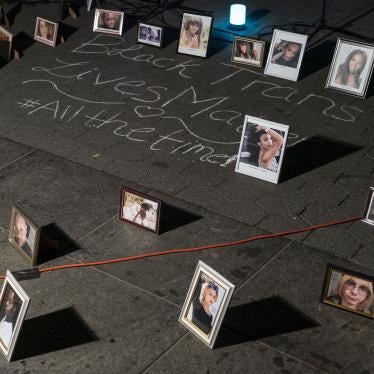As the U.S. Supreme Court ruling on same-sex marriage resonates around the globe, it will have both positive and negative impact. In some countries it will add enormous momentum to a growing consensus for legal recognition of same-sex partnerships. But in others the specter of “gay marriage” will be used to stoke moral panic among conservatives and prove to be an obstacle for activists working for basic rights.
On the positive side, Germany, already under pressure from the Irish referendum, will find it more difficult to justify its two-tiered, unequal system of marriage for some and registered partnerships for others.
Australian Prime Minister Tony Abbott, meanwhile, quickly dismissed the ruling saying: “What happens in the United States is obviously a matter for the United States.” But he is wrong. It was announced on July 1 that the issue will come to a head in August when a cross-party marriage equality bill is introduced in parliament.
In Nepal marriage equality is on the horizon: the Kathmandu government is required to eliminate all forms of discrimination against LGBT people in accordance with a 2007 Supreme Court ruling that cited Lawrence v. Texas (the U.S. Supreme Court case that declared sodomy laws unconstitutional). On June 12, the Mexican Supreme Court beat the U.S. Supreme Court to the punch by establishing the right to same-sex marriage nationwide. Colombia is also poised to introduce same-sex marriage. In response to the U.S. court decision, Interior Minister Juan Fernando Cristo stated simply: “Equality is unstoppable, and equality also will come to Colombia.”
In the Philippines, activists celebrated the ruling despite a realistic assessment that marriage equality will remain a pipe dream, blocked by a Roman Catholic Church that does not shy away from politics in this majority Catholic country. Indian activists hope that the ruling will positively influence judges when they reconsider a previous Supreme Court verdict on a law that criminalizes same-sex relationships.
Even in some intractable settings, the ruling is likely to prompt renewed debate. For example, an editorial in a leading Jamaican daily, said: “As uncomfortable as this may be for some of us, this issue, at its core, is the matter of fundamental human rights, including the right to human dignity and for individuals to exercise their right of choice, especially when that right does not impinge on the rights of others.” Ah Qiang, director of Parents and Friends of Lesbian and Gays (PFLAG) China noted that, “I’ve never seen so much debate in both the traditional media and social media – so many people, and in so much depth.” Renewed pressure for change, inspiration for activists, and more open discussion on partnership recognition: that’s the good news.
Glass Half Empty
Now the bad news. It is the sobering reality that for many activists who are still struggling for the most basic recognition of their rights, the marriage ruling, even if relished privately as a potent symbol of equality, will also be a political obstacle to their work. Homophobia is regularly used for political ends and gay rights depicted in many places as an “import from the West.” In this respect the reaction from Medard Bitekyerezo, a Ugandan politician gunning for harsher anti-gay laws there, was predictable but not unique: “The U.S. Supreme Court’s declaration shows the West has become totally disorientated and descended into a Sodom and Gomorrah society,” he said.
This would not be the first time that same-sex marriage has been used as a specter for discriminatory legislation and inciting moral panic. South Africa’s Constitutional Court ruled in December 2005 that the country’s existing definition of marriage was unconstitutional and ordered parliament to review it to include same-sex couples. Within weeks Nigeria introduced the Same-Sex Marriage (Prohibition) Bill, which was eventually signed into law in January 2014. The Nigerian law calls itself a law against same-sex marriage but goes much further than that to outlaw LGBT groups and penalize any support for LGBT organizations. In doing so, it denies basic rights of freedom of association and expression. Shortly after Hillary Clinton, then US Secretary of State, made a groundbreaking speech on LGBT rights at the United Nations Human Rights Council in 2011, a bill was introduced in Liberia seeking to prohibit marriage between persons of the same sex. Although it wasn’t passed, it was merely a symbolic gesture in a country where same-sex marriage was not – and still is not — permitted.
Reports of “gay weddings” have provoked arrests or violence in Kenya (2010), Malawi (2009), Senegal (2008), and Nigeria (2007). In a characteristically inflammatory speech this May, President Yahya Jammeh of Gambia said: “If you are a man and want to marry another man in this country and we catch you, no one will ever set eyes on you again, and no white person can do anything about it.” Last October, Gambia introduced life sentences for “aggravated homosexuality,” including for repeat offenders.
Marriage equality has not even been on the agenda of activists in any of these countries, but has nevertheless been used as a pretext for clampdowns against LGBT communities. The U.S. ruling is likely to be exploited for similar ends as critics invoke “Western imperialism” and “gay marriage” in one breath to direct the conversation away from pressing social and economic ills and political discontent. In a world in which LGBT rights have become something of a lightning rod for competing worldviews, we can predict pushback and a hardening of attitudes.
The Struggle Ahead
As LGBT people around the globe struggle for an end to violence and discrimination, and as they organize and advocate for themselves, the specter of same-sex marriage will be used as an attempt to curb these basic rights. Nigeria is one striking example. For activists working in seemingly intractable settings, though, there is hope in Justice Anthony Kennedy’s observation that: “The nature of injustice is that we may not always see it in our own times. The generations that wrote and ratified the Bill of Rights and the Fourteenth Amendment [to the US constitution] did not presume to know the extent of freedom in all of its dimensions, and so they entrusted to future generations a charter protecting the right of all persons to enjoy liberty as we learn its meaning.” It may be that, ultimately, the language of marriage and kinship will have a more receptive audience than the crude or archaic language of laws that outlaw “buggery” or “carnal knowledge against the order of nature.”
Marriage equality is not the end point in the fight for LGBT equality in the US. Only 22 states and the District of Columbia protect lesbian and gay people from discrimination in the workplace. This means that same-sex couples can get married in all 50 states, but can also get fired from their jobs for being gay in most US states.
The rights of LGBT people are highly contested around the world. Some countries continue to hold the view that sexual orientation and gender identity should be relegated to the subjective realm of morality, culture, or religion. In a world in which lines have been drawn around a false dichotomy of “liberal modernity” and “traditional values” and in which homophobia is increasingly used as a political tactic to distract attention from pressing social and political issues, marriage equality will likely become shorthand for competing world views and used as a wedge issue. Given the powerful position that the US occupies in the world, the landmark marriage decision is likely to be a mixed blessing for activists in diverse settings, both a thrilling reminder of what can be achieved and an obstacle on the long road to achieving basic human rights.









